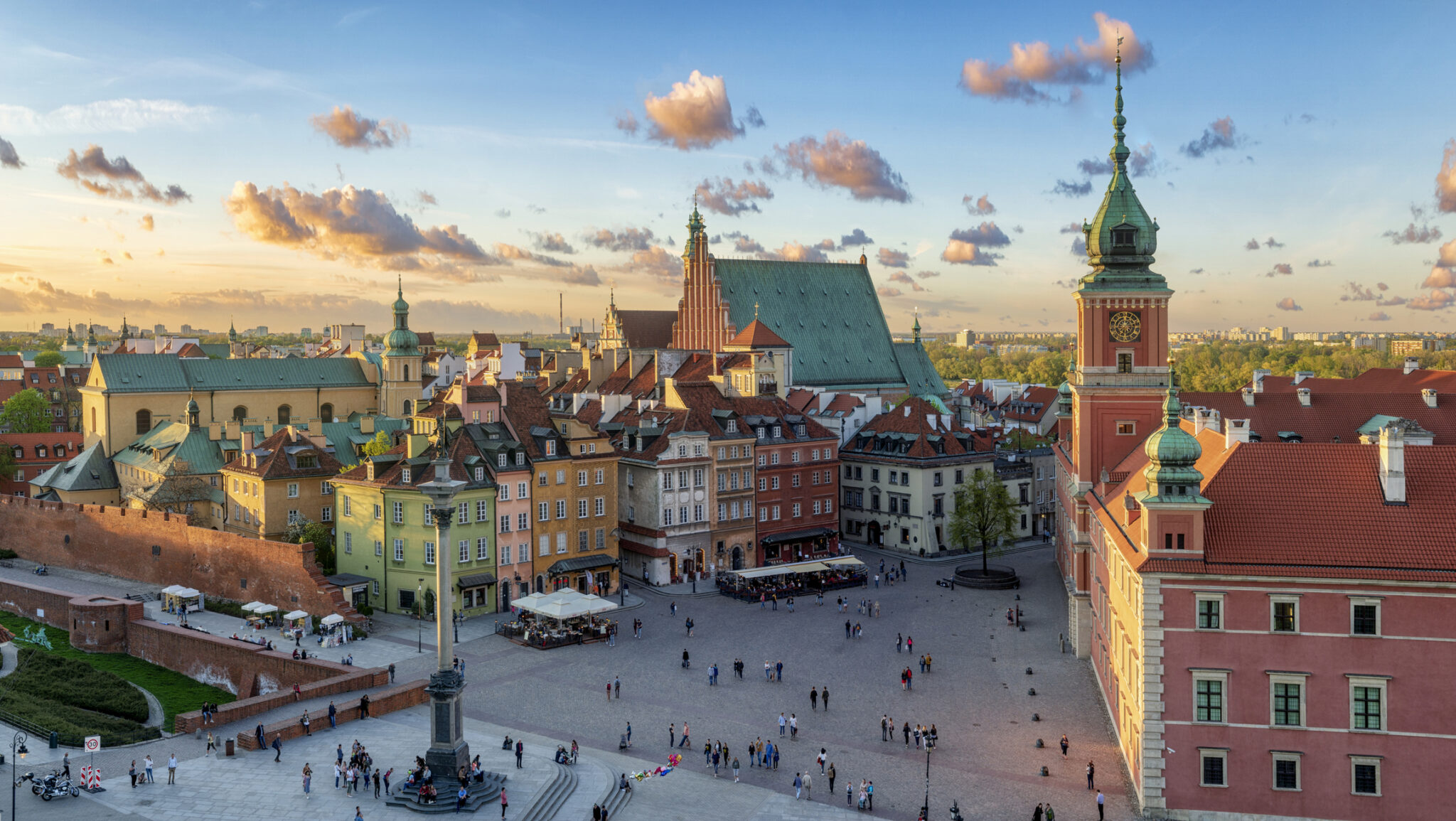EXPERT PERSPECTIVE — An explosion last week, in the eastern Polish village of Przewodow, killed two people and created heightened concern about just how quickly the war in Ukraine could escalate into a global conflict.
The Cipher Brief compiled a tic-toc of what happened, telling the story of how a single missile brought into sharp focus, the risks that are truly at play in Ukraine.
BACKGROUND
- Polish Radio ZET reported that two stray missiles caused the blast.
- The Associated Press cited a senior US intelligence official saying Russian missiles had crossed into Poland.
- The Pentagon initially said it could not confirm reports that Russian missiles had landed in Polish territory.
- The Russian Defense Ministry denied the reports, calling the allegations “a deliberate provocation aimed at escalating the situation.” It added that Russia did not hit targets near the Ukrainian-Polish border and that debris found at the site of the blasts had “nothing to do with Russian weapons.”
- Ukrainian President Volodymyr Zelenskiy later said, without providing evidence, that Russian missiles hit Poland. He called the attack on “the territory of our friendly country” an “attack on collective security” and said it marked a “significant escalation” in the conflict with Russia.
- In response to the blasts, Polish Prime Minister Mateusz Marawiecki held an emergency Security Council meeting. The Polish government also raised military readiness.
- Polish President Andrzej Duda spoke with President Joe Biden about the blasts. The White House said Biden reiterated to Duda that the US has an “ironclad commitment to NATO.”
- Duda also discussed the incident with NATO Secretary General Jens Stoltenberg, who said it was important to find all the facts behind the causes of the explosion.
- A Polish government spokesman said Poland is considering whether it will call NATO for discussions under Article 4, which states that an alliance member can call for consultations when it feels its “territorial integrity, political independence or security” are at risk.
“If this was an accident, the instinct in Warsaw and Washington will be caution and restraint, with Article 4 discussions signaling the Russians not to screw up again,” Cipher Brief Expert and former Acting Director of CIA John McLaughlin told us.
John McLaughlin, Former CIA Acting Director
“If this was a deliberate provocation, and we will almost certainly know before long, then the Alliance will be provoked and will have to respond in some way. The default impulse will probably be to avoid getting into a tit-for-tat between NATO and Russia. But we might relax some of the cautions we’ve given the Ukrainians about not hitting certain Russian targets or other redlines.”
The incident sparked alarm and calls for the defense of NATO territory across central and eastern Europe, putting squarely into focus the question of just how quickly NATO would be ready to launch a response and what that response might look like.
- Latvia appeared to explicitly accuse Russia of causing the blasts. Latvian Defense Minister Artis Pabriks tweeted, “Criminal Russian regime fired missiles which targeted not only Ukrainian civilians but also landed on NATO territory in Poland.”
- Estonia expressed solidarity with Poland as well as its willingness to “defend every inch of NATO territory,” according to a tweet from the Estonian Ministry of Foreign Affairs. However, Estonia did not explicitly blame Russia for the blasts.
- Lithuanian President Gitanas Nauseda likewise expressed solidarity with Poland and called for “every inch of NATO territory” to be defended, according to a tweet. He said “the cause of the explosions is not yet known,” but added that they happened as Russia launched missile strikes in Ukraine.
- Hungary convened a defense council meeting to discuss the blasts, as well as disruptions to oil flows through the Druzhba pipeline.
“We don’t know enough yet about the strike,” cautioned Cipher Brief Expert and former NATO Supreme Allied Commander Admiral Jim Stavridis (Ret.).
Admiral James Stavridis (Ret.), Former NATO Supreme Allied Commander

“But assuming it was an errant missile from Russia, this provides a strong motivation to reinforce air defense along the NATO-Ukraine border at a minimum. It could also cause NATO to provide MIG-29 aircraft to the Ukrainians from Poland, with US backfilling with F-16s. And it may cause a serious discussion about putting a no-fly zone up over Ukraine, manned by NATO fighters.”
The Morning After
The Polish Foreign Ministry released a statement early Wednesday saying that a Russian-made missile caused an explosion in eastern Poland that killed two people. The ministry said it summoned the Russian ambassador and “demanded immediate detailed explanations” for the blasts.
- Polish President Andrzej Duda then appeared to step back from a full-throated condemnation of Russia, saying there is no conclusive evidence showing who fired the missiles and that investigations are ongoing. He added that the explosion appeared to be a “one-off” incident. He also said it is likely Poland will ask for consultations under Article 4 at a planned North Atlantic Council meeting on Wednesday.
- President Joe Biden convened an emergency meeting of NATO and G7 leaders gathered in Bali for a G20 summit to discuss the missile blast. He told reporters that, according to “preliminary information,” he thinks “it is unlikely” the missile was fired from Russia due to its trajectory, but said he would not make any conclusions until the Polish investigation is completed.
- Three US officials tell The Associated Press that preliminary findings suggest that the missile that landed in Poland was fired by Ukrainian forces in an attempt to intercept an incoming Russian missile.
- Polish President Andrzej Duda says the explosion was “very likely” an “unfortunate accident” caused by an Ukrainian air defense missile, rather than any “intentional attack.” He added that the missile was “most likely” Russian-made, but that there is no current evidence that Russian forces fired it.
- NATO Secretary General Jens Stoltenberg echoed Duda’s conclusion, though he emphasized that “this is not Ukraine’s fault” and that “Russia bears ultimate responsibility as it continues its illegal war against Ukraine.”
Sir Alex Younger, Former Chief, MI6
“It is, literally, a warning shot about the possibility of escalation,” Cipher Brief Expert and former Chief, Britain’s Secret Intelligence Service, MI6 Sir Alex Younger told us. “But I’m confident that Putin understands that deliberate escalation is very much not in his interest. I’d add that even if it was a Ukrainian air defence missile, the blame still lies firmly with Russia.”
What Did We Learn?
Among other things, we learned how dangerously close a single missile can come to escalating an already tense situation to a higher level of global conflict. We learned how quickly information is shared and we saw how NATO countries were at least thinking about responding, if the missile had in fact, been fired by Russia. While the lessons from this single incident are worth noting, so too is the bigger picture.
“In 2008, when Russia invaded Georgia, the response of the West was inadequate. Russia got to hold on to 20% of the nation of Georgia,” Cipher Brief Expert and former NATO Supreme Allied Commander General Phil Breedlove (Ret.) told us.
General Phil Breedlove (Ret.), Former NATO Supreme Allied Commander
“The western world rewarded Russia’s bad behavior. In 2014, Russia invaded Ukraine and took 11 or 12% of Ukrainian territory. Moscow threatened to huff and puff and blow our house down with World War III or their nukes. Once again, the west capitulated and allowed them to hang on to a big chunk of Ukraine. For the second time, we rewarded bad behavior. We shouldn’t be surprised that we’re back now for a third time. Russia has seized another big part of Ukraine. And when the west starts to respond, Russia has huffed and puffed and threatened to blow our house down with World War III and nukes. And they fully expect us to capitulate a third time. We in the West are at a point of decision, are we going to, for the third time, reward bad behavior? The West and the Western world have a decision to make. Mr. Putin is huffing and he’s puffing and he’s threatening to blow our house down and we need to decide how we’re going to respond. Here’s what I know for sure: If we capitulate and allow Russia to hold onto even more Ukrainian territory, we’ll be back here again in 2025 and 2028 and 2031 and 2033. It’s time for us to step up.”
Cipher Brief Writer and Researcher Ethan Masucol contributed to this piece
Read more expert-driven national security insight, perspective and analysis in The Cipher Brief
Check out our Latest News and Follow us at Facebook
Original Source

